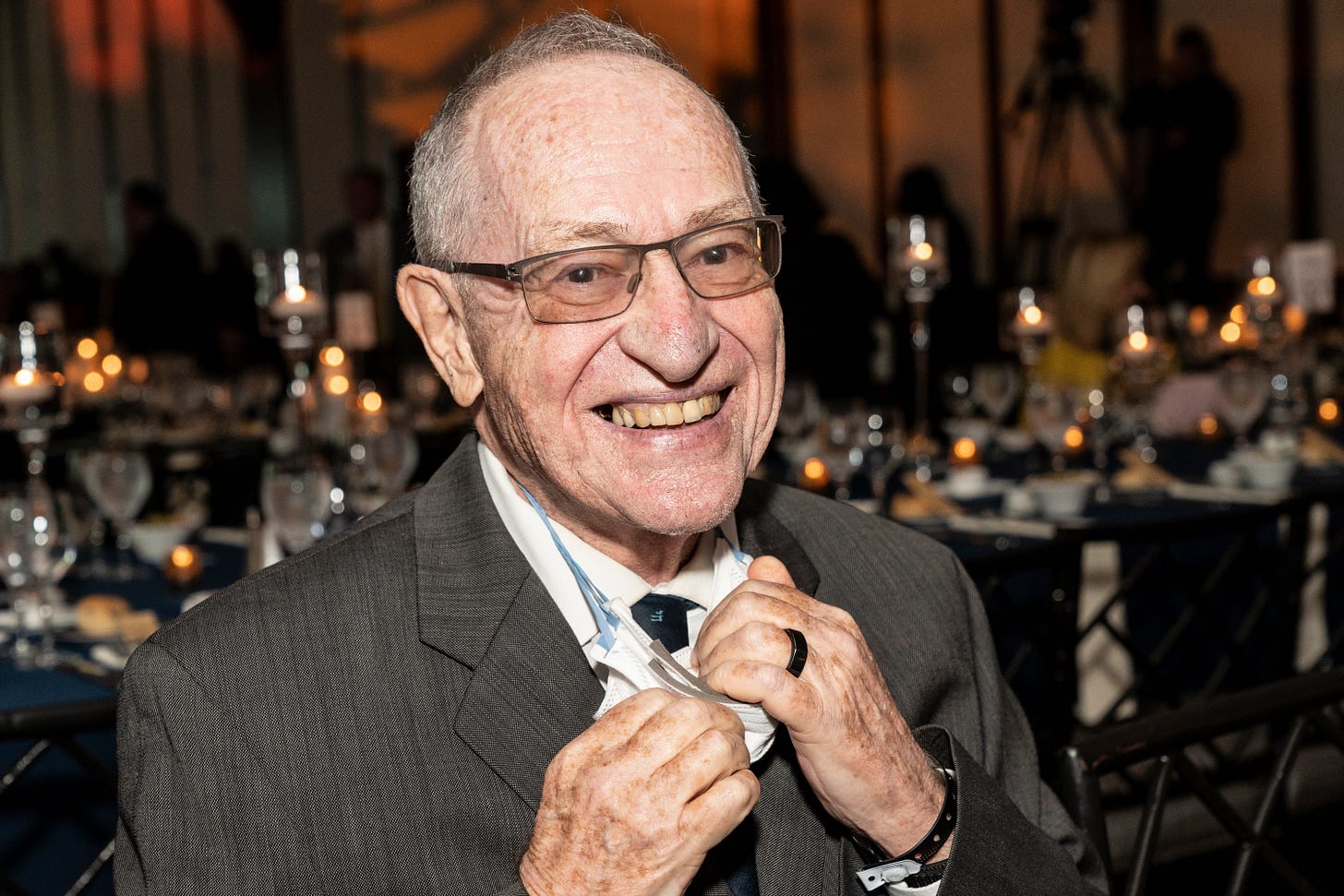Alan Dershowitz: A Profile of Evil
A war criminal's lawyer, a pedophile defender, a pro-murder lawyer. This is Alan Dershowitz.
The Devil's Advocate, On Purpose
Alan Dershowitz once told the world he was simply defending civil liberties. That the unpopular deserve the best defense. That power must be held in check by lawyers brave enough to stand up for the rights of the reviled. But somewhere along the way, that mission mutated.
Over time, Dershowitz stopped being the man who ch…
Keep reading with a 7-day free trial
Subscribe to The Crustian Daily to keep reading this post and get 7 days of free access to the full post archives.



